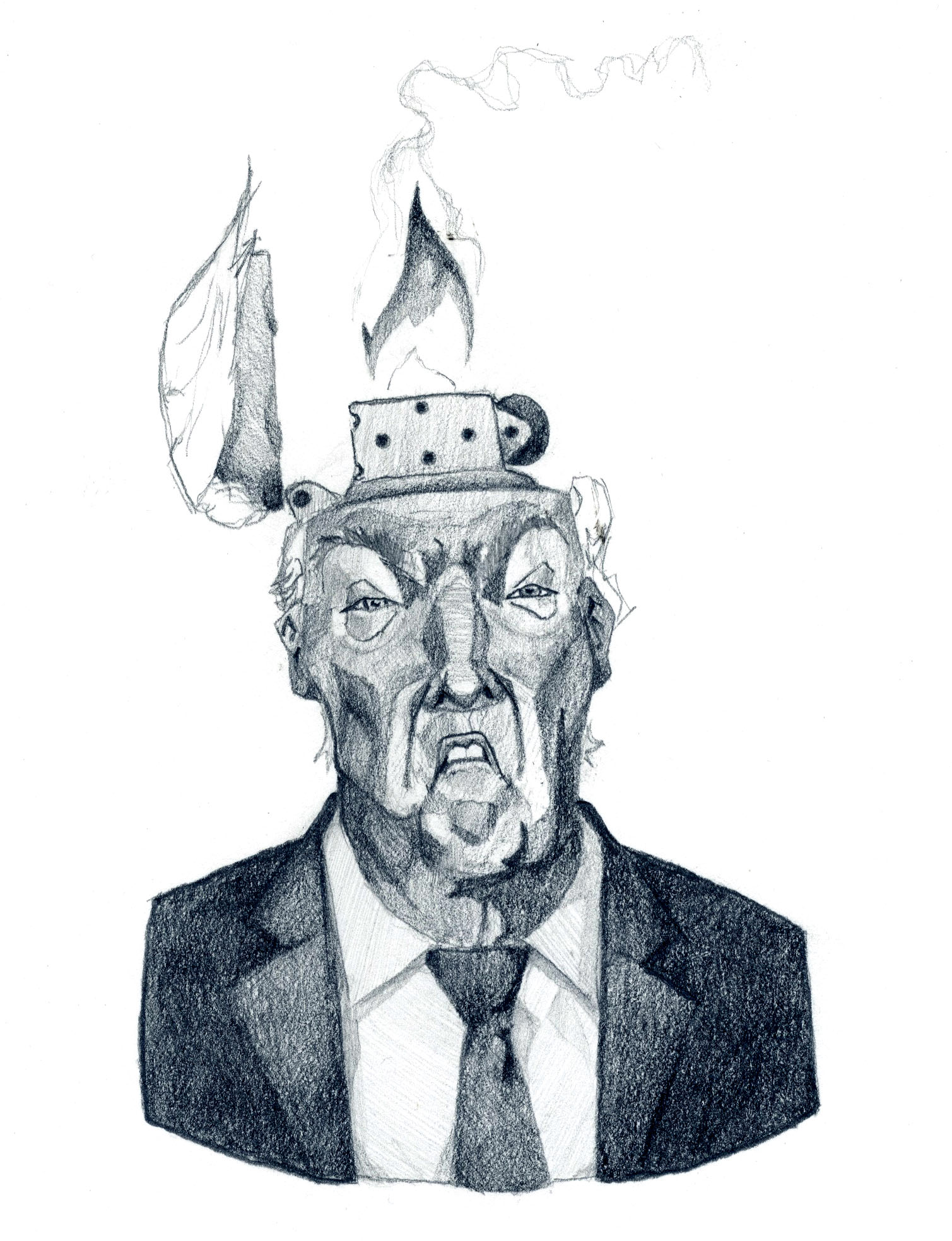
“The reason to write this book could not be more obvious,” writes Michael Wolff, author of the new best-selling political critique of the Trump administration, titled “Fire and Fury: Inside the Trump White House.” The book, advertised as a compilation of over 200 interviews and many firsthand observations from the 18 months that Wolff spent within the Trump campaign and the White House, paints a damning picture of the incompetent, erratic and petty Trump administration. But Wolff ends up concluding the same thing that much of the country has already decided over the past year: Donald Trump should not be president of the United States.
Plagued with grammatical errors, incorrect facts and spelling mistakes (on page 37, Wolff refers to “Trump Towner”), Wolff’s book reads more like a political thriller than any sort of extended investigative reporting. In recent weeks, the political right has seized upon Wolff’s gaffes to discredit the picture he paints of the president. Readers have pointed out several times when Wolff simply gets facts wrong, allowing the political right to discredit the work further.
Yet, the greatest critique of Wolff’s work is his questionable sourcing; he often sources friends of political aides and others who are at least twice removed from a story. Wolff even states in his opening author’s note that he cites “sources I have come to trust” and off-the-record sources, leaving him open to charges of fabrication. Since the book’s release, Trump supporters have described it as “fake news,” a novel that is full of false claims and jumps to conclusions that aren’t apparent.
Various publications, such as Newsweek and the Washington Post, have reported on the deceitful and unethical means by which Wolff gained nearly full and unregulated access to the administration. For example, Wolff pitched the book to Trump as “The Great Transition,” chronicling the first 100 days of the Trump administration.
Despite the methodological and ethical issues with the work, Wolff frames the 18 months as compelling and dramatic. Steve Bannon is framed throughout the work as a delusional, physically repulsive and tragic cult hero, Trump’s only believer from the beginning of his involvement in the 2016 campaign. However, Trump’s own insecurities and inability to understand the institutions underlying the American presidency clash with Bannon’s obsessive focus on them, leading to Bannon’s inevitable ejection from the White House. Bannon’s nonstop rivalry with Jared Kushner and Ivanka Trump — whom he refers to as “Jarvanka,” his hatred for many top-ranking members of the administration and general reputation within the White House for being unbearably intense and unlikable all contribute to the tragic, almost romantic ending for the evil genius behind the greatest theft in American history: the Trump presidency. It reads like a tragic epic.
All of the members of the administration are just as cartoonish, with no story more dramatized than election night. Kellyanne Conway, Ivanka and Jared, Reince Priebus, Katie Walsh, Melania Trump and of course Trump himself are all described as shocked and even upset by their own success. They all aspired to different, promising new beginnings at the close of the campaign; now, they were forced to be a part of the most controversial presidency in the history of the United States.
This is the style and theme that threads the book together: enticing, thrilling, but leaving the reader skeptical of the work itself. Although many of the stories have a ring of truth, it would be a stretch at times to say that the reporting is accurate. The book overflows with generalized statements. The writing is at times poor. The work is overall unsatisfactory.
The book is, however, an accurate representation of the difficulty found in covering President Trump. Every somewhat distant source is scrutinized; anonymous sourcing, despite its frequency in modern political reporting, is questioned. Trump has used his presidency to discredit the media, and every account must be either perfect or entirely disregarded. Wolff’s book has seen such scrutiny in the weeks since its publishing.
Since the book’s anticipated release, its price has gone down in many stores from $30 to $20, and the Yale bookstore is currently offering the work at a 30 percent discount. Liberal readers have generally been left disappointed, while conservative readers have found another indictment of the liberal, anti-Trump media. Rather than inciting political debate and exposing an administration vastly unpopular and accused of treason, Wolff has anticlimatically rushed the book, only invalidating a year and a half’s work of investigative journalism.
Nick Tabio | nick.tabio@yale.edu







